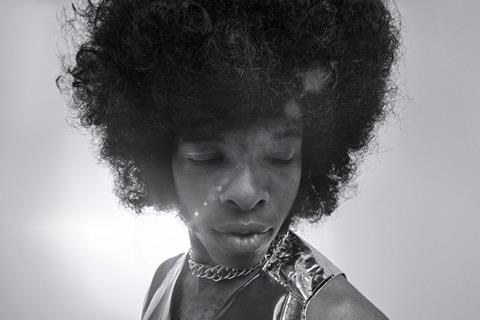Questlove takes on the extraordinary shapeshifter Sly Stone in this unconventional rock doc

Dir: Ahmir ’Questlove’ Thompson. US. 2025. 112mins
Many documentaries about famous musicians feature a predictable rise-then-fall narrative. But for his first film since the Oscar- and Bafta-winning Summer Of Soul (2021) director Ahmir ’Questlove’ Thompson challenges that familiar trajectory by analysing precisely why those inevitable lows are far more harrowing for Black artists — using as his test case Sylvester Stewart, better known to the world as Sly Stone.
More than a highlight reel of greatest hits
Sly Lives! pays homage to the pioneering rock and funk icon whose heyday in the 1960s and early 1970s was cut short by crippling drug use. However, Thompson encourages audiences to question what it is about American culture that puts Black superstars on a different pedestal than their white peers, arguing that race was also a crucial factor in Stone’s downward spiral.
Premiering at Sundance, like Summer Of Soul, Sly Lives! will stream on Hulu in the US on February 13 with its international future, through Disney, TBC. The documentary boasts a wealth of indelible Sly And The Family Stone performances, not to mention a collection of musical luminaries — including Chaka Khan and Andre 3000 — who extoll Stone’s brilliance.
In a nod to the film’s subtitle — The Burden Of Black Genius — Thompson begins by asking different Black musicians to define Black genius, a question that leaves them stumped. But it is a theme the director (and drummer in the group The Roots) returns to over the course of Sly Lives! as he tells the story of Sly Stone, now 81, who began his career as a San Francisco disc jockey before turning his attention to songwriting and producing. During a turbulent period in American history, Sly And The Family Stone — that rare integrated band with white, Black, male and female performers — preached inclusiveness, daring to mix musical styles at a time when pop, R&B and rock were separated on the radio dial.
Working again with wizardly Summer Of Soul editor Joshua L. Pearson, Thompson swiftly moves from Stone’s early days to the formation of Sly And The Family Stone, which became a Top 40 powerhouse in the late 1960s. Sly Lives! smoothly segues between archival clips and present-day conversations with members of The Family Stone and contemporary artists. Whether it’s rock guitarist Vernon Reid, rapper Q-Tip, or pop producers Jimmy Jam and Terry Lewis, the greats of myriad genres share their insights into what made Stone’s music immortal. It’s particularly exciting to hear them break down the different sonic elements in a song like ‘Everyday People,’ helping the audience hear a classic track with fresh ears.
To that end, the documentary does more than provide a highlight reel of greatest hits. Thompson’s subjects articulate the cultural forces that informed monumental works such as 1971’s ’There’s A Riot Goin’ On’ album with the kind of expertise we rarely get from musician portraits of that era, which tend to repeat the same tired talking points about Vietnam and the civil rights movement. Instead, Sly Lives! is as vivid as the music Stone created, his magnetic stage presence and dextrous creativity on full display.
Notably, Stone is not interviewed, which might make many wonder if he has died. Indeed, for years this was a legitimate worry for fans, who saw him fade from relevance as his drug habit started to overwhelm him in the late 1970s. While Stone continued recording, his later material lacked the revolutionary originality that once seemed so effortless. Thompson cannot completely escape the familiarity of Stone’s narrative arc, but the thoughtfulness with which he interrogates the notion of Black genius — and the idea that the white American mainstream hungrily consumes the work and then disposes of these artists — gives Sly Lives! a provocative, contemplative side that such artist documentaries rarely possess.
Without excusing Stone’s self-inflicted wounds, the film tries to make the case that Black superstars are highly vulnerable to a public comeuppance — and that a Black artist such as Stone, who morphed between styles, was not as readily accepted as a white artist, such as David Bowie, who make a career out of shapeshifting. Also, Stone did not have Black peers to turn to when his career was at its zenith, which also may have contributed to his turning to drugs to find solace. These arguments may not always be fully convincing, but they offer new ways of thinking about a legend who could easily be written off as just another cautionary tale.
As joyous as much of Stone’s music was, plenty of it was despairing, so it is no surprise Sly Lives! navigates similar emotional extremes. But Thompson reveals his deep love for this musician by looking past the rock-doc cliches, searching for the soul of a man who put every ounce of it into his songs.
Production companies: Network Entertainment, Two One Five Entertainment, RadicalMedia, Stardust Films, ID8 Multimedia
Worldwide rights: Disney/Onyx
Producers: Joseph Patel, Derik Murray
Cinematography: Laura Merians Goncalves
Editing: Joshua L. Pearson
























